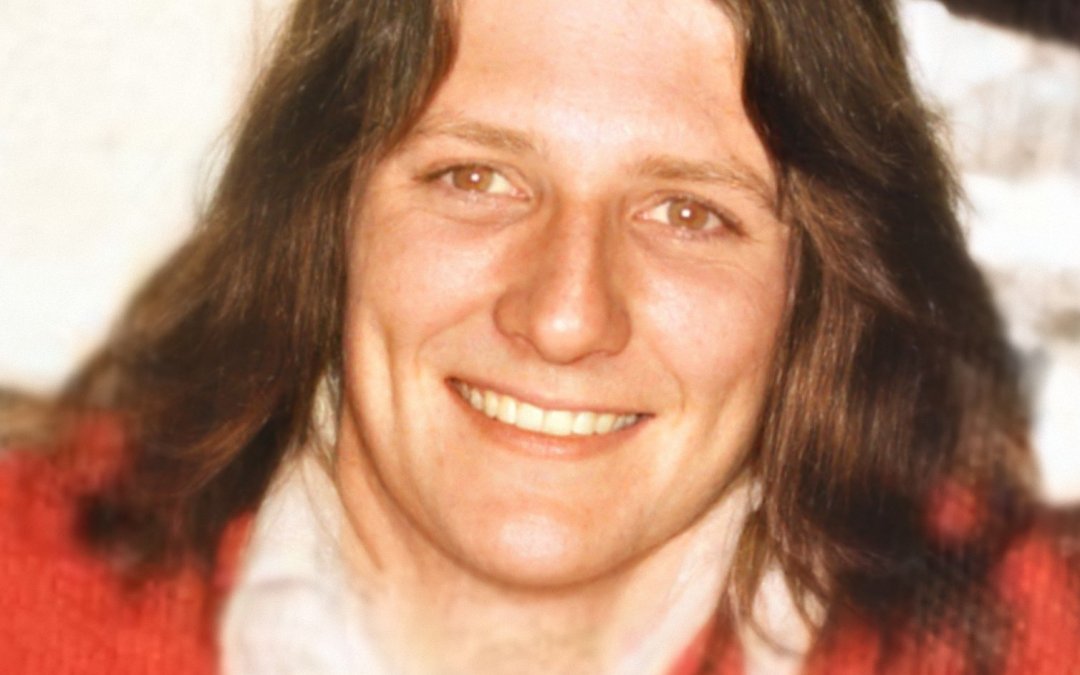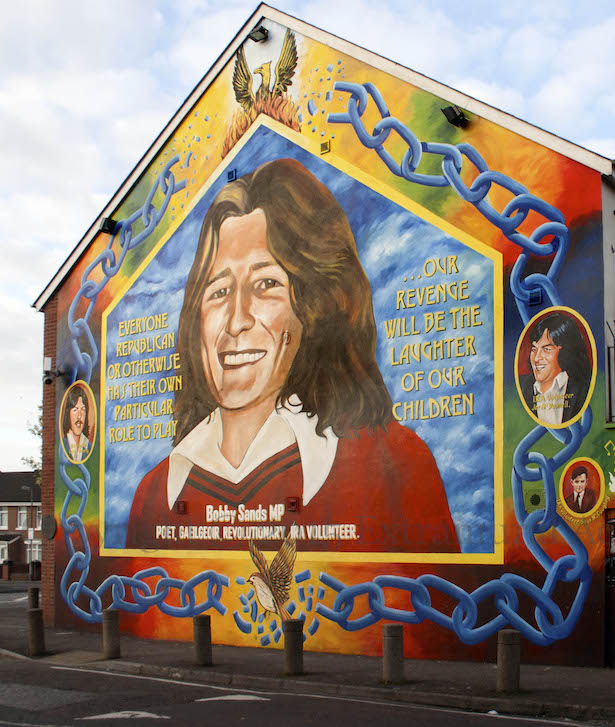It was 43 years ago this week that Bobby Sands died on hunger strike in Northern Ireland. After 66 brutal days of starvation his body gave out but his spirit marched on.
Eventually ten men died, their extraordinary belief in their rights to live as free Irishmen astounded the world.
I was living in San Francisco at the time, 6,000 miles from Ireland, but the anger was palpable among the Irish American community there.
 We gathered outside the British consulate as a group walked behind a mock coffin chanting “Bobby Sands MP” in recognition that he had been an elected member of the British parliament.
We gathered outside the British consulate as a group walked behind a mock coffin chanting “Bobby Sands MP” in recognition that he had been an elected member of the British parliament.
Irish America was on fire over Thatcher allowing the elected hunger striker to die. That fire once lit, would never quench.
In retrospect letting Bobby Sands die was one of the greatest mistakes the British made in the history of Northern Ireland.
His election before he died to the House of Commons showed the Sinn Féin leadership, still very much the junior partner to the IRA in 1981, that politics could actually work and bring tens of thousands out onto the streets and into polling booths.
Sinn Féin learned well and the political evolution began on that May night that the death of Sands was announced.
I for one, considered that the Sands death was a turning point in my beliefs.
Up to that point I had little time for the IRA, believing that the frequent atrocities and bombings were totally counterproductive in terms of building worldwide support for a united Ireland. John Hume’s “agreed Ireland” seemed a better concept.
I would not have been caught dead at an IRA man’s mock coffin demonstration outside a British consulate before Bobby Sands.
I saw many others like me on that night, people who had a deep ambivalence about the situation in Northern Ireland but who were utterly inflamed and upset at what Margaret Thatcher had just allowed to happen.
From Sands’ death on, Sinn Féin began to take more and more prominence in the republican debate.
It is a long haul but there is a direct line from there to the peace process and the ultimate entry of Sinn Féin into shared power in Northern Ireland, an idea that would have been inconceivable that May evening 43 years ago.
But it happened, and the stage was set with the death of Bobby Sands.
As Yeats remarked, “all changed, changed utterly” from that point on.


Bobby Sands, intelligent, driven and artistic Bobby also wrote poetry
Such a waste of a young life. I was younger than Bobby, and well
removed from the hunger strikes, living in the West , but I was
Involved mentally and emotionally and still am.
I feel we didn’t do enough here in the South and I still harbour
a sort of pain as a result of that, though I joined street marches
As each hunger strike passed away RIP.
Of course little good that did.